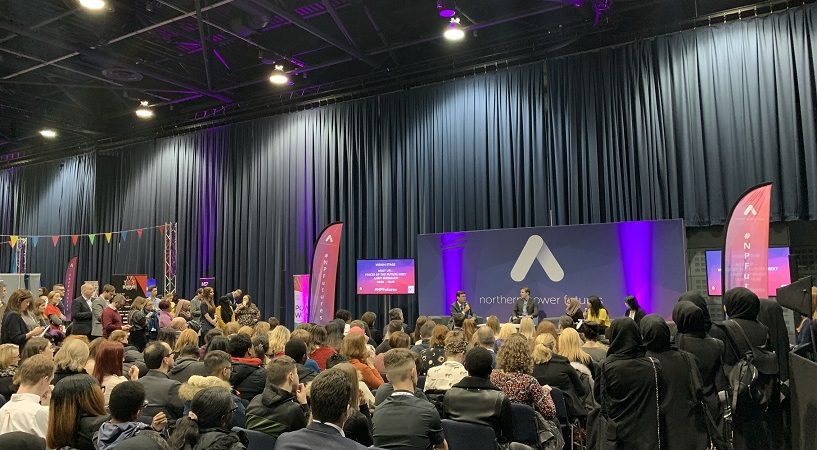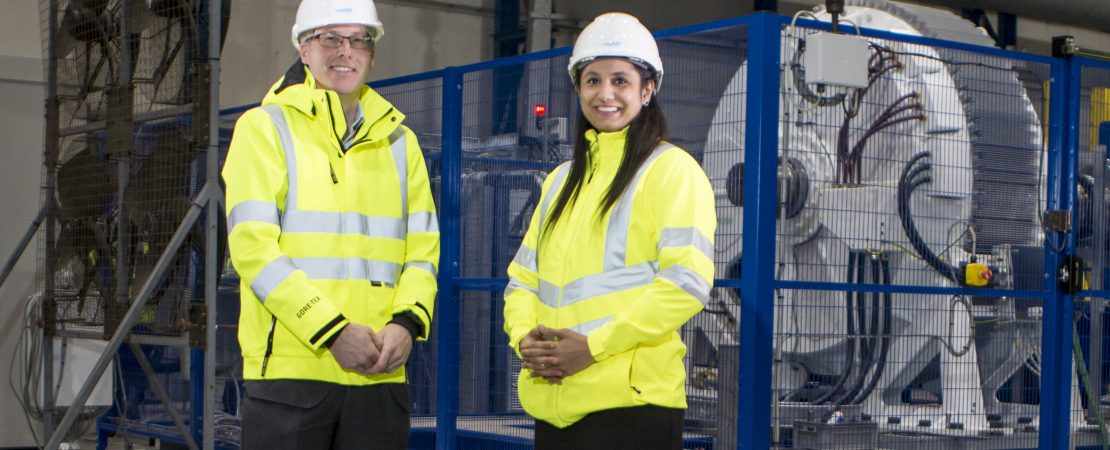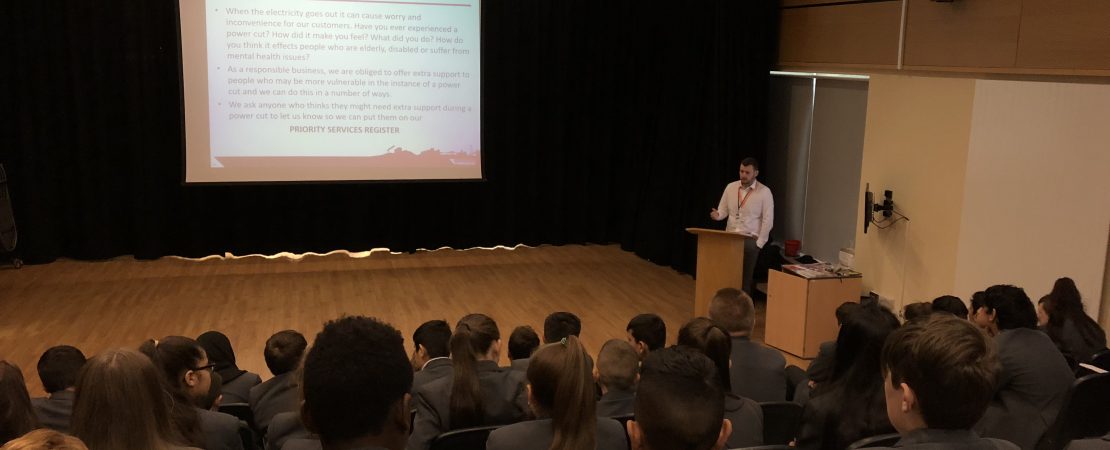Improving skills in the North East and access to quality careers education for children and young people is a key area of work for the North East Local Enterprise Partnership and features in the region’s Strategic Economic Plan to create 100,000 more and better jobs by 2024. A better skilled workforce will help drive economic growth.
School governing bodies increasingly have a vital role to play in supporting the skills agenda in the region and the LEP is working closely with schools and colleges to encourage more people from the private sector to consider a role as school governor.
Kerrie Hood, Head Teacher at Fellside Community Primary School, spoke to us about the importance of good school governance, and why it’s so important to our economic future.
What is school governance?
I like to think of school governance as a three-fold approach. The first, and possibly the most important, is the level of leadership and focus on the strategic direction and aims of the school that it brings. The board of governors helps to steer the ambitions of a school and to realise its mission, its vision and its values.
Schools are accountable to the public and governance provides a layer of transparency at leadership level that promotes this.
Finally, school governance examines and monitors the integrity of how we operate; the deployment of our finances; our policies, practices and procedures; and, of course, our school performance standards.
What role does a school governor play and why is it so important?
I’ve been a Head Teacher for five years and worked in education for 13. In that time I’ve seen the sector move towards a more professionally driven, business-led system of school management. We’re increasingly being made to make business-based decisions, so having the expertise and business acumen of the governing body is certainly beneficial. They bring an important layer of skills and knowledge that complements that of the staff team and colleagues in the local authority.
Governors are an important buffer or ‘sounding board’ whose opinions or reactions a leadership team can use to gauge a likely response in a wider sense to a decision or intended action. In this, they live up to the widely-used term ‘critical friends’.
Governance plays a vital part in the judgement of the leadership and management of a school during Ofsted inspections. A common underlying weakness in such inspections is the failure of governing bodies to hold school leaders to account. It is vital, therefore, not to underestimate the key factors that contribute to good and outstanding governance.
What makes good school governance?
There are some general traits including unwavering trust; a strong desire to work with integrity in the spirit of collaboration; and having a good understanding of the local community that the school serves. We want to attract people with a strong moral compass; people that want to make a positive difference to young people, teachers and the wider community.
Increasingly schools are more open about what they need from their governors. At Fellside, we generally look to where we have a shortage of skills or knowledge from our skills audit, and then seek to recruit someone whose aptitudes and competencies will best fulfil this. We’re very fortunate to be able to attract some extremely well-qualified governors who bring a wide-range of expertise and experience to our board.
A critical factor in the success of a governing body lies in its absolute clarity on roles, responsibilities and lines of accountability. The most successful governing bodies are resolute in their strategic role in the leadership of a school but understand the distinction between this and the more operational role of the leadership team. Ofsted has cited ‘blurring’ of the roles as a weakness in some governing bodies; and regrettably it is sometimes not detected until inspection. A conversation about this is crucial, particularly where multi-level governance makes accountability complex.
A professional and passionate chair with a strong interest in school improvement is also key to a successful board. For me, it’s one of the most critical relationships in my role as head teacher. I’ve been fortunate enough to work under two fantastic chairs who have provided me with much moral support, as well mutual respect and understanding of our respective roles and responsibilities. Their ability to challenge and support helps our school improve.
What can we do to improve school governance in the North East?
I think schools and governors both gain from sharing the mutual benefits of sitting on a school governing board. It’s a two way street. I think we could do even more to promote this. A potential governor could gain much from broadening their horizons to include what might be an entirely different setting or context to that which their day job routinely entails. Yes, schools benefit enormously from a varied governing board that represents different areas of the business community, but schools can also add value to them, I believe. One of our governors is the CEO for a charity that supports schools in Africa. She’s able to learn from our best practice and implement that at the schools she works in.
What are the current challenges facing school governing bodies?
There are many, the most obvious one being the strain on school finances. Standards are expected to rise year on year, yet we’re generally less able to provide the quality or volume of resources and levels of staffing we’d like to have in schools. This is creating some very difficult decisions for leadership teams and governors.
Ensuring governors get access to key information to assist them in carrying out the key tenets of their role among a seemingly relentless ‘sea’ of initiatives or change to policy is increasingly challenging. Recently, changes to accountability measures with the demise of National Curriculum levels; understanding the impact of the National Funding Formula; and regular changes to inspection frameworks are but a few such variations on the education landscape. Assimilating this information can be challenging for governors. At the same time, of course, it is imperative that governors are given access to the very information that informs appropriate challenge on school leaders. Not having access to key assessment information – or even accepting leaders’ interpretation of data without question – for example, has resulted in Ofsted being critical of the limiting ability of some governing bodies to effectively hold school leaders to account.
Succession planning is another thing I know can be testing for some governing bodies. When there is a strong nucleus on a board and someone leaves, how do you best fill that role? We’ve tried to ensure our board remains buoyant with the appointment of associate members who can essentially ‘learn the ropes’ and hopefully step into a co-opted position later. At Fellside we are fortunate that we have a high level of interest from people in wanting to be school governors – but that’s not the case for every school, of course.
How connected is school governance with the regional economic landscape (e.g. preparing students for the world of work)?
Increasingly so, and that includes at primary level. Governance provides us with the opportunity of bringing colleagues from the private sector into the public sector domain. In terms of moulding workforce development, this juxtaposition is invaluable – and in turn, it assists the economic buoyancy of our region. If we can positively influence the skill set of young people through an early introduction to role models from many varied professional backgrounds, we can help to promote aspiration and social mobility.
The North East LEP’s Enterprise Advisor programme is a great example of this. Business leaders embed themselves in secondary schools and colleges to help shape the delivery of careers education. A voluntary role, it reflects how education and business can work together to improve opportunities for students.
We have a role to play in supporting the regional economy by providing students with the skills employers need. By introducing them to careers education from a young age, we undoubtedly benefit as a region.
How can people become a school governor?
I would recommend anyone interested in becoming a school governor to either speak to the head teacher of the school or, as I often do, arrange for them to speak to the Chair of the governing board.
Often people have the desire to help but don’t know the requirements and commitment it takes to be a governor. It is important people know what to expect and the level of involvement generally required.
I also think people should speak to their employers and get them on side with your ambition. A supportive employer understands when people need time off work for board commitments.
There are some fantastic websites too that provide lots of helpful information. I know many of my board members have used www.governorsforschools.org.uk and www.inspiringgovernance.org.
If you’re not wedded to a particular school, the governance section of your local authority is another fantastic resource. They can provide information and they often hold events for prospective governors too.
For more information about how the North East LEP is improving skills in our region, visit www.nelep.co.uk/skills









